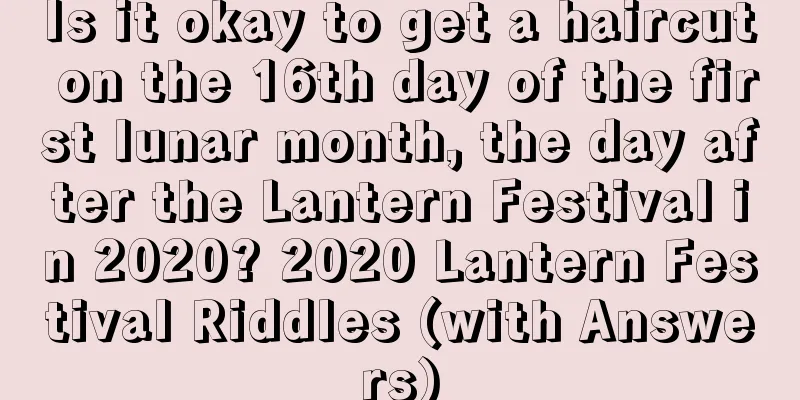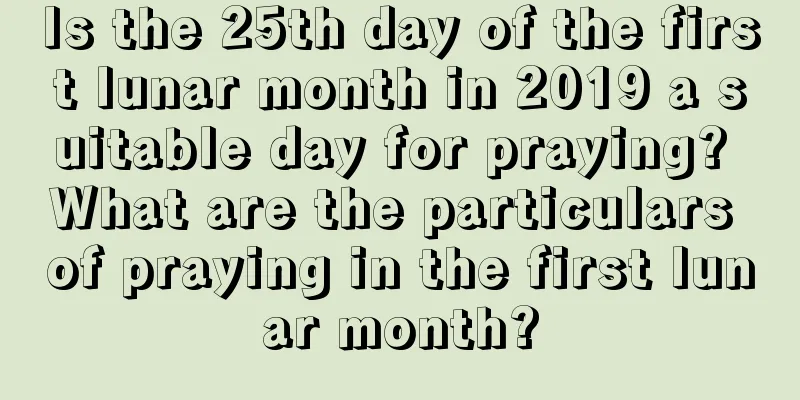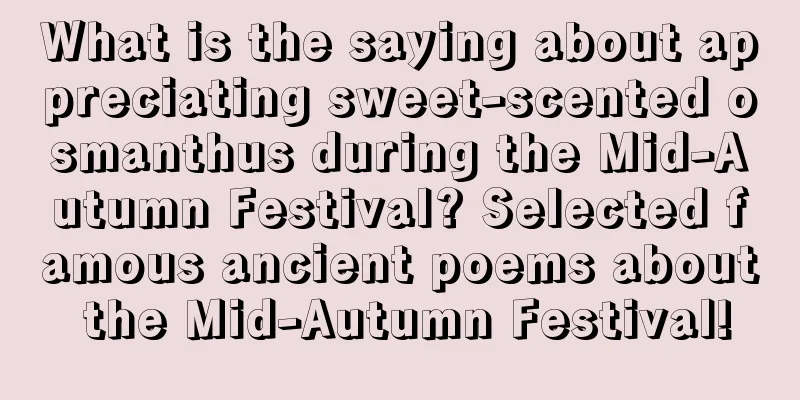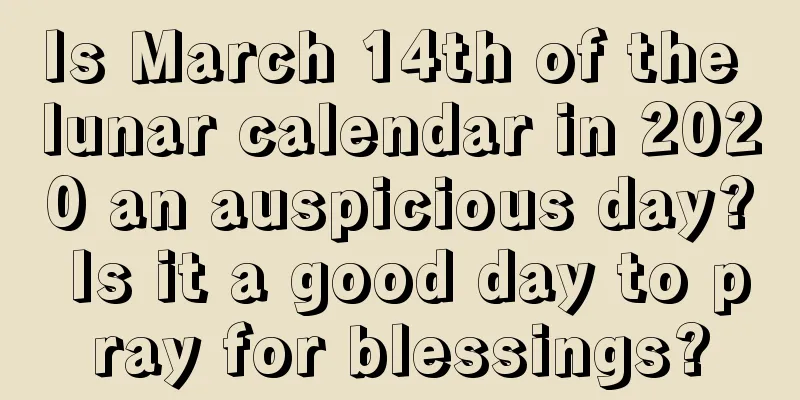What are the customs of the Spring Festival in different places?

There are many Spring Festival customs, and they are slightly different in different places. It is these Spring Festival customs that make up the strong festive atmosphere of New Year's Eve. Nowadays, traditional culture is becoming less and less popular, and many people are missing the happy and lively New Year’s Eve. The Fortune Teller website provides you with more information related to the first month of the lunar calendar in 2018. You are welcome to learn more about it!What are the customs of the Spring Festival in different places?The Spring Festival temple fair in old Beijing is commonly known as the Chinese New Year. In addition to general New Year customs, temple fairs were the main custom of celebrating the New Year in old Beijing. In addition to the well-known Changdian, Wuxian Temple of the God of Wealth (from the 2nd to the 16th day of the first lunar month), Dongyue Temple (from the 1st to the 15th day of the first lunar month), and Baiyun Temple (from the 1st to the 19th day of the first lunar month) are all famous temple fairs that are most representative of the Beijing New Year's celebrations.The official activities of Wuxian God of Wealth Temple start from the second day of the first lunar month. Early in the morning on the second day of the Lunar New Year, most of the people who go to the Temple of the God of Wealth to burn incense, except for the extremely wealthy and powerful, ride bicycles. Most of them wore cotton robes made of various silks and satins, with a jacket or waistcoat on the outside, and a felt hat on their heads. The pilgrims set out from the city through Guang'anmen and headed south, with generally favorable winds (because Beijing's winter winds are mostly northwest). But once you leave Guang'anmen, you have to go against the wind. Paper fish were tied with a bamboo splinter with a white string for easy carrying; strings of gold and silver ingots made of clay and covered with gold and silver foil were also tied to the bamboo splinter. There is also a kind of windmill that makes a loud sound. This kind of windmill is made of thin bamboo strips and colored paper strips to make the wind wheel, and is installed on a sorghum straw frame. Each wind wheel has a pair of small drum legs tied with white lines, which beat a small clay drum covered with paper. When the wind blows strongly, the drum makes a rattling sound. This type of windmill can be single, or four or even dozens connected together. In the evening, when the sun is setting, as long as you walk onto the street, you can see bicycles one after another forming a turbulent flow of traffic. Shaanxi Spring Festival customs are similar throughout the country. Shaanxi has simple folk customs, and the Spring Festival has a strong rural flavor and local characteristics. The beginning of the year. In ancient times, the "New Year" was not on the 29th or 30th day of the twelfth lunar month, but on the "Laba Day", which later became "Laba". It was not until the Northern and Southern Dynasties that the La Festival was moved to the end of the year. During the Republic of China period, the Gregorian calendar was adopted and the lunar year was called the "Spring Festival". Because the Spring Festival usually comes after the "Beginning of Spring", it is called the Spring Festival. People in Shaanxi still call the Spring Festival "Guo Nian" today, and a story about the Chinese New Year has been passed down. In ancient times, there was a ferocious beast called "Nian". It would appear on the night when winter was about to end and the New Year was about to arrive. They come out to eat people, making people restless. In their fight with "Nian", people discovered that this ferocious beast was most afraid of fire and noise, so they came up with an idea. Once "Nian" appeared, they would light a big fire and throw bamboo joints into it. When "Nian" saw the raging fire and heard the popping firecrackers, it would escape without a trace. Later, the custom of reunion during the Chinese New Year gradually formed. The customs of staying up late on New Year's Eve, hanging red lanterns, posting couplets, setting off firecrackers and eating New Year's Eve dinner. Yunnan New Year Customs: Yunnan people also post couplets during the New Year like the Han people. But the "couplets" were various patterns cut out of red paper. Not only is the "writing" method different, but the way of pasting is also unique. On New Year's Eve, every member of the family, young and old, holds a homemade spring couplet and sings the "New Year's Song" together, and posts them on everything in the yard, outside the yard, in the vegetable garden, orchard, and on the corners of the fields. Because they are sung while pasting, the Bai people’s Spring Festival couplets are called “singing couplets”. The pattern on the gate is of Haruki and an elephant, made by the oldest person in the family and pasted by the youngest doll. While pasting the stickers, people sang folk songs like "Spring is back and the earth brings a hundred blessings. All things are renewed and auspicious. Facing the green mountains, the livestock are thriving. At the door, the fields are full of crops. The families are well-fed and harmonious. The country is prosperous and the people are at peace." After pasting the "song couplet" on the front door, we then paste it on the main room door, the upper door, the room door, the kitchen door, then the plow, rake, saddle and other production tools, and finally the flowers, plants and trees... Whatever the "song couplet" is pasted on, that thing will be used as the "theme", and a couplet will be sung to "express" the meaning of the couplet. For example, if pasted on the bamboo branches is a paper-cut of firecrackers, the "joint song" people sing is: The bamboo's report of peace is worth a thousand gold, and the integrity is passed down from generation to generation to enhance the family reputation; the east wind is proud that flowers bloom thousands of miles away, and the red sun is shining brightly on all the trees. This kind of "song couplet" that combines paper-cutting and singing can be regarded as a unique flower in Bai culture. In the old days of Shanghai , there were many beggars during the Spring Festival. There is a kind of beggars who beg not because their families are poor, but to show filial piety. It is said that when an elderly person reaches the age of 99 or 81, he will pass through the gates of hell, and only by eating "a hundred-family meal" can he pass through this gate safely. Therefore, filial sons and daughters who have elderly parents at home go out of their homes on the first day of the New Year to beg for food for their parents. There is another type of beggar commonly known as "beggars" and the way they beg is funny. Some beggars wrap turnips in red paper and hang them on bamboo poles. Every time they arrive at a house, they say that turnips have arrived and business is good, and they beg for alms. This is called "sending turnips." Some make cow shapes out of paper and bamboo threads, and go to the doorsteps of every household and say nice and auspicious words in an attempt to ask for alms; this is called "sending the spring cow"; some hold a holly or cypress branch and hang some small bells and ancient coins on the branch, which means that in the new year, the family will be like a money tree, with abundant wealth rolling in; this is called "money tree"; some beggars wear Buddhist robes, wear deity masks on their heads, and dress up as the God of Wealth and run and jump wildly in the courtyards of every household to show that the God of Wealth has come; this is called "dancing the God of Wealth." Although the people of Chongming lived in poverty in the old society, they were still kind and generous to the beggars when they saw them, and gave them some dry food and other food. After liberation, these business methods have long disappeared. The 23rd day of the twelfth lunar month is an important folk festival before the Spring Festival, and people call it the "Kitchen God Festival." Every time this time comes, people can't contain their joy of welcoming the New Year. They stop their work and busily carry out the routine activities of worshiping the Kitchen God and sending off the God before the New Year. The custom of worshiping the kitchen god on the 23rd day of the twelfth lunar month in Henan Province is accompanied by a sad folk legend. In ancient times, an old couple had only one son, and they treated their son like the apple of their eye and loved him very much. But because the family was poor and had no way to make a living, he had to reluctantly let his son go to the coal mine to dig coal. The old man misses his son very much because he has not returned for a long time. That day, the old woman asked the old man to go to the coal mine to take a look. On the way, the old man met a barefoot fellow traveler. The two became more and more familiar with each other and got along very well. During the conversation, the old man learned that Guangjiaopian was sent by the King of Hell to come to the mine to take back a hundred miners. The old man was extremely anxious and begged Guangjiaopian to let his son stay. Guangjiaopian agreed generously and asked him not to tell anyone else. When he saw his son, the old man pretended to be sick. His son took care of him and was unable to go down the well. Not long after, an accident occurred in the coal mine and the old man hurriedly took his son back home. Three years passed in a blink of an eye. On the night of the 22nd day of the twelfth lunar month of that year, the old man thought of the risk he had taken that year and could not help but tell his wife about it. Unexpectedly, the Kitchen God heard this and on the night of the 23rd, he went to heaven and told the Jade Emperor about this matter. The Jade Emperor was furious and immediately punished the barefoot man and took away the old man's son. For this reason, every 23rd day of the twelfth lunar month, people respect the Kitchen God and eat kitchen candies, hoping that after he goes to heaven, he will no longer stir up trouble in the human world. Over time, people have been worshiping the Kitchen God on the 23rd day of the twelfth lunar month. Chongqing New Year Customs Chongqing is known as the Mountain City and the Fog City in China. The most obvious sign of celebrating the Spring Festival there is the sight of wintersweet flowers in every street and alley. It is reported that locals like to display pale yellow wintersweet flowers at home during the Spring Festival, as their petals have a fragrant smell. Nanshan in Chongqing is rich in wintersweet flowers. Starting from the twelfth lunar month, whether you go to the flower market or walk on an ordinary street, you can see farmers from the suburbs carrying baskets filled with wintersweet buds. On the street, you can often meet citizens holding wintersweet flowers. The price is very cheap, a bunch (4 flowers) costs RMB 2. Taboos during the Spring Festival in Chaoshan area: Because the first month of the year is the beginning of the year, Chaoshan people often regard it as a sign of good or bad fortune for the new year, so there are many "taboos" during the New Year. In terms of speech, it is taboo to say any unlucky words such as "broken", "bad", "no", "dead", "light", "ghost", "kill", "sick", "pain", "lose", "poor", etc. It is also taboo to let a baby cry, because crying means "bad luck" and indicates illness or disaster. Therefore, even if a child gets into trouble on this day, he should not be beaten or scolded, so as to avoid him crying incessantly. In terms of behavior, you must be extra careful when holding cups, plates, bowls, and dishes and not break them. If you break them accidentally, your custom of fetching water will become a mere formality. The custom of prohibiting sweeping the floor is also gradually being eliminated. During the Spring Festival, firecrackers are set off, people come and go, and there are a lot of paper scraps and garbage on the ground. It is really unsightly if you don't sweep it. Therefore, from the perspective of hygiene, many young people do not pay much attention to these traditional taboos and customs. On this day, creditors are not allowed to come to collect debts, because people believe that collecting debts on this day is unlucky for both the lender and the borrower. It is also taboo to take things out of other people's pockets. People believe that if someone takes things out of your pockets on the first day of the first lunar month, there is a risk that your pockets will be "empty" for the whole year. It is taboo to have dead people or hold funerals, as this will bring bad luck to the family. At the same time, it is taboo to get a haircut on this day, because people always like to associate haircuts with funerals on this day. On this day, it is even forbidden to kill, as killing is believed to lead to disasters such as sword disasters, war disasters, and blood disasters. However, now that people's living standards have improved, they don't have any scruples about eating something new and fresh to satisfy their appetite. Regarding diet, it is strictly forbidden to take medicine on this day. Otherwise, it is believed that one will suffer from illness from beginning to end and will have to take medicine continuously throughout the year. There are several explanations for why you should not eat meat for breakfast on the first day of the New Year: one is that the benefit of eating a vegetarian meal is equal to that of a whole year; another is that it is a metaphor for running a household frugally and not wasting money. Hong Kong New Year Customs The Lunar New Year is a traditional grand festival in our country, and I believe that every Chinese is familiar with it. However, in Hong Kong, the Lunar New Year is completely different from the traditional one in terms of customs and atmosphere. In recent years, very few Hong Kong people follow the tradition of putting up Spring Festival couplets and New Year pictures at home during the Lunar New Year. Instead, they put up Spring Festival couplets with words such as "prosperous business" and "safe travel" in some shops or homes. Despite this, the original intention of pasting Spring Festival couplets is the same as pasting Spring Festival couplets and New Year pictures, which is to bring good luck and hope that everything will go smoothly and safely in the coming year. In addition, lion dances and dragon dances will also appear in some villages and walled villages in the New Territories. It is rare to see large-scale lion dances and dragon dances on the streets during the New Year. As for setting off firecrackers, firecrackers, etc., they are all prohibited in Hong Kong, right? "Since 1982, a grand fireworks display has been held on the second night of the Lunar New Year every year over Victoria Harbour. This has become a program to welcome the Spring Festival in the past decade. Hong Kong is known as a "food paradise" and there are many customs related to food during the Spring Festival. Most families will also have a "family reunion dinner" during the Spring Festival. Generally, the banquet is held at home, and the whole family, inside and outside, gather together on New Year's Eve to enjoy dinner. The most popular activity after dinner is probably visiting the flower market. During the Chinese New Year, there are many New Year markets in Hong Kong and Kowloon, among which the flower market in Victoria Park is the largest and most lively. Hong Kong citizens are accustomed to visiting the flower market with their families after dinner. On New Year’s Eve, there are huge crowds of people, shoulder to shoulder, celebrating the festival together. In Hong Kong, the happiest people during the Chinese New Year are the children who receive red envelopes. During the Spring Festival greetings, the laughter of children asking for red envelopes can be heard everywhere. "Lai Shi" originally meant "good news", which means good luck and fortune. It has also become an indispensable custom for spending time with family during the Spring Festival. Fujian New Year Customs The New Year customs in the rural areas of southern Fujian seem to be different from those in the cities. In rural farmers' houses, there are many houses and doors. In addition to pasting Spring Festival couplets, two sugarcane roots with red paper wrapped around them are placed on both sides of the door. They are called "door sugarcane". In the local dialect, "sugarcane" sounds similar to "jia", which means entering a good situation. The table in the hall is placed with New Year's Eve dinner, long-lasting vegetables, and steamed cakes, and is decorated with "spring branches" made of red and yellow paper, which symbolizes abundant food throughout the year and good luck and wealth. : : : : : : : : : : : : : : : : : : : : : : : : : : : : : : : : : : : : : : : : : : : : : : : : : : : : : : : : : : : : : : : : : : : : : : : : : : : : : : : : : : : : : : : : : : : : : : : : : : : : : : : : : : : : : : : : : : : : : : : : : : : : : : : : : : : : : : : : : : : : : : : : : : : : : : : : : : : : : : : : : : : : : : : : : : : : : : : : : : : : : : : : : : : : : : : : : : : : : : : : : : : : : : : : : : : : : : : : : : : : : : : : : : : : : : : : : : : : : : : : : : : : : : : : : : : : : : : Xiamen's annual folk customs Xiamen has many folk customs, which have changed greatly in recent years with the progress of the times. In order to adapt to local customs, the following is introduced: On the first day of the first lunar month, the doors are opened at dawn and incense is lit, which is called "Kai Zheng". When people get up early in the morning to offer sacrifices to their ancestors, manure and dirt are not dumped outdoors on that day. The third day of the first lunar month is the day for the bereaved family to burn their new bed. Do not visit friends' homes whose homes you have not visited on the first or second day of the Lunar New Year. Visiting would be disrespectful. There is a proverb that goes, "Get up early on the first day, get up early on the second day, and get up late on the third day," which means that if there are no guests on the third day, it's okay to get up late. So how did this custom come about? According to legend, during the Jiajing period of the Ming Dynasty, Japanese pirates occupied Wuyu, an island off the coast of Xiamen. On New Year's Eve one year, officers and soldiers were busy celebrating the New Year and neglected to guard the city. A large group of Japanese pirates took the opportunity to attack the city. The army and civilians rose up to resist the enemy. After two days and three nights of fierce fighting, the Japanese pirates were defeated, but the army and civilians in the city suffered heavy casualties. On the third day, people buried their relatives and friends, mourned the dead, and cried loudly. They had no time to visit other families to wish them a happy new year. On the third day of the second year, Xiamen residents regarded this day as their death anniversary, and over time it became a custom. On the fourth day of the first lunar month, Buddhists must burn paper and horses to welcome the gods, in order to prepare for the farewell of the gods on the twenty-fourth day of December. The ninth day of the first lunar month is the birthday of the Jade Emperor, and people set up incense tables to worship the gods. However, the bereaved family must suspend sacrifices for two years. The tenth day of the first lunar month is the birthday of the earth. No wood was cut or earth was dug on that day. And offer sacrifices with ordinary items. On the thirteenth day of the first lunar month, it is the birthday of Guandi, and all businesses offer sacrifices to him. On the fifteenth day of the first lunar month, the Lantern Festival or the Lantern Festival is the birthday of the Three Emperors and people celebrate with lanterns. Taiwan's New Year Customs: Like other parts of mainland China, Taiwan's Spring Festival, also known as the Chinese New Year, is the most lively and longest festival among the people. It usually starts from the "Tail-Gong" on the 16th day of the 12th lunar month and ends after the Lantern Festival (Shangyuan Festival) on the 15th day of the first lunar month, lasting a full month. Year-end party. The first, fifteenth, second, and sixteenth day of every month are the days when Taiwanese businessmen worship the God of Land, which is called "Zuoya". The first tooth ceremony is on February 2nd, which is called the "first tooth"; the one on December 16th is the last tooth ceremony, so it is called the "last tooth". The year-end party is the "end" of a year's activities for businesses and the "forerunner" of the Spring Festival activities for ordinary people. On this day, ordinary Taiwanese families burn money to offer sacrifices to the God of Land (also known as the God of Land). They also set up a bench in front of the door, offer five-flavor bowls, burn sutra clothes and silver paper to worship the foundation master (the worship of the foundation of the house). All businesses and companies will also host lavish banquets for their employees today to reward them for their hard work over the past year. In the past, if a boss did not plan to renew an employee's contract for the following year, he would point a chicken head at the employee during a banquet, implying the intention to fire him. However, this custom has disappeared. In addition to the year-end dinner that has become increasingly popular in recent years, according to traditional customs, the whole family gathers together to "eat the year-end dinner." The main foods are runbing and gua bao. Runbing is made by wrapping bean sprouts, bamboo shoots, bean sprouts, garlic, dried eggs, tiger moss, peanut powder, tomato sauce and other ingredients in a roll-like skin. The food stuffed in the gua bao includes pork belly, pickles, dried bamboo shoots, coriander, peanut powder, etc., which are all delicious local foods. |
Recommend
Is the seventh day of the sixth lunar month in 2022 suitable for signing a contract? What about the lunar calendar?
In the sixth month of the lunar calendar, the scor...
Why is August 15th the Mid-Autumn Festival? Should I give gifts during the Mid-Autumn Festival in 2020?
The Mid-Autumn Festival is coming soon, the day wh...
What is the date of the End of Heat solar term in 2017? What are the customs?
Introduction: China has been one of the typical tr...
Is the 12th day of the 10th lunar month in 2022 an auspicious day? Is the hexagram an upper or lower hexagram?
There are many outcomes in life, and we will welco...
Is it a good day to get married on November 14th of the lunar calendar in 2017?
Winter months are cold, but when everything goes ...
Is the fifth day of the sixth lunar month in 2021 a good day? Can I make the bed?
Setting up the bed seems to be a trivial matter, b...
Is a baby born on February 15th of the lunar calendar in 2018 an Aries?
Each zodiac sign has its own label. Aries’ label i...
Is it suitable to start work on the second day of the third lunar month in 2022? What is the hexagram for this day?
The third month of the lunar calendar is the trans...
Can we offer sacrifices to our ancestors on the third day of the eighth lunar month in 2019? What should we pay attention to during the sacrifices?
The weather in August has gradually turned cooler....
If Xiaoxue gets pregnant in 2020, what is suitable and unsuitable to do during pregnancy?
It is not easy for a woman to be pregnant for ten ...
If you get pregnant at a young age, when will you give birth? When will we celebrate Little New Year in 2019?
People believe that the Kitchen God goes to heaven...
What are the do's and don'ts on the 28th day of the sixth lunar month in 2017?
What day is June 28th in the lunar calendar 2017?...
Is April 18th of the lunar calendar in 2018 suitable for offering sacrifices?
Sacrifices are generally divided into sacrifices t...
Is the fate of a boy born on October 11, 2018 in the lunar calendar good or bad?
Introduction: Every day has its good and bad luck,...
Is September 21st of the lunar calendar 2021 a good date? Is it suitable for signing a contract?
In September, chrysanthemums bloom proudly in the ...









